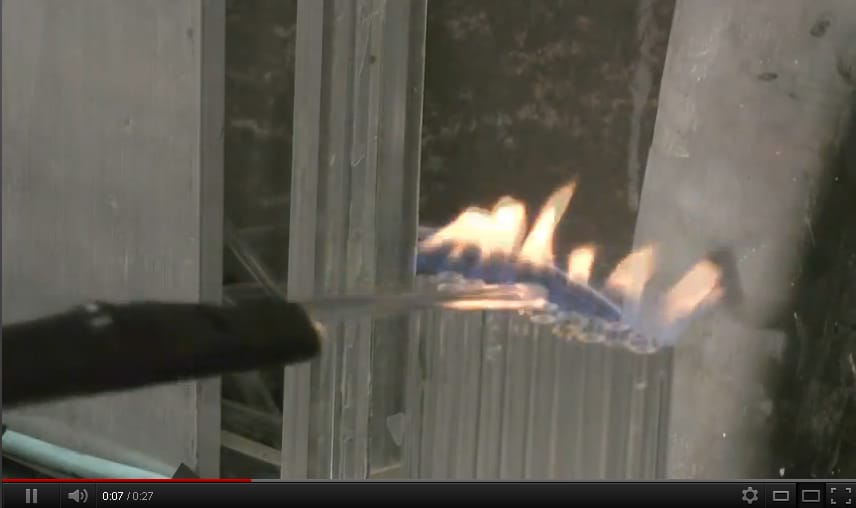A fire breaking out in a confined space, such as on a ship or in the cockpit of an airplane, puts armed forces members at unnecessary risk. Using water to extinguish the flame can cause “collateral damage to valuable property” and may have “limited effectiveness in different types of fire.” Carbon dioxide suffocates flame by removing oxygen, but even that can cause “environmental toxicity.” DARPA, the Defense Advanced Research Projects Agency, recently ended their Instant Fire Suppression program, which “sought to establish the feasibility of a novel flame-suppression method based on destabilization of flame plasma with electromagnetic fields and acoustics techniques.” Their research team at Harvard University “has demonstrated suppression of small methane and related fuel fires by using a held-held electrode, or wand.”
To learn more and see the video, visit DARPA





